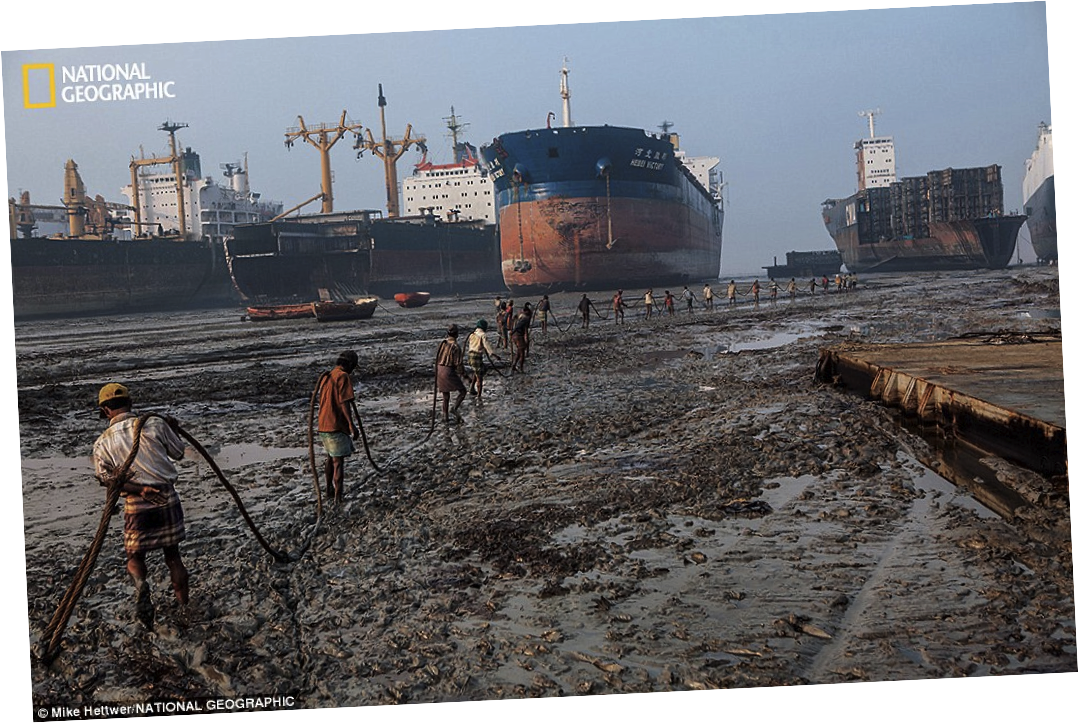• one of the most dangerous jobs in the world
• Arduous and dangerous job employs 200,000 Bangladeshis and is notorious for injuries to and deaths of workers
• There are around 80 yards along an eight-mile stretch of the coast of Bangladesh
The sad beauty of these incredible images cast a light on the shipbreaking industry in Bangladesh, where workers face death and injury from accidents and environmental hazards for just a few dollars a day. Looking at the images remind me when I was looking at Lewis Hines work, bringing up the question of health and safety in the workplace.
Chittagong Ship Breaking Yard is the largest of its type in the world. Around 80 active ship breaking yards line an eight-mile stretch of the coast, employing more than 200,000 Bangladeshis and accounting for half of all the steel in Bangladesh.
Ship breaking is the dismantling of ships for scrap recycling. Most ships have a lifespan of a 25-30 years before there is so much wear that repair becomes uneconomical, but the rising cost to insure and maintain aging vessels can make even younger vessels unprofitable to operate. Ship breaking allows materials from the ship, especially steel, to be recycled. Equipment, fuel and chemicals on board the vessel can also be reused.

Peter Gwin, writing for National Geographic, visited the region to see it first hand. He described the guards, razor wire-topped fences and signs prohibiting photography there, installed following scrutiny in the ship breaker's operations after a spate of deaths. He said: 'In the sprawling shantytowns that have grown up around the yards, I met dozens of the workers. Many had deep, jagged scars. "Chittagong tattoos," one man called them.
'Some men were missing fingers. A few were blind in one eye.
'In one home I meet a family whose four sons worked in the yards. The oldest, Mahabub, 40, spent two weeks as a cutter's helper before witnessing a man burn to death when his torch sparked a pocket of gas belowdecks.
'"I didn't even collect my pay for fear they wouldn't let me leave," he says, explaining that bosses often intimidate workers to keep silent about accidents.'






No comments:
Post a Comment